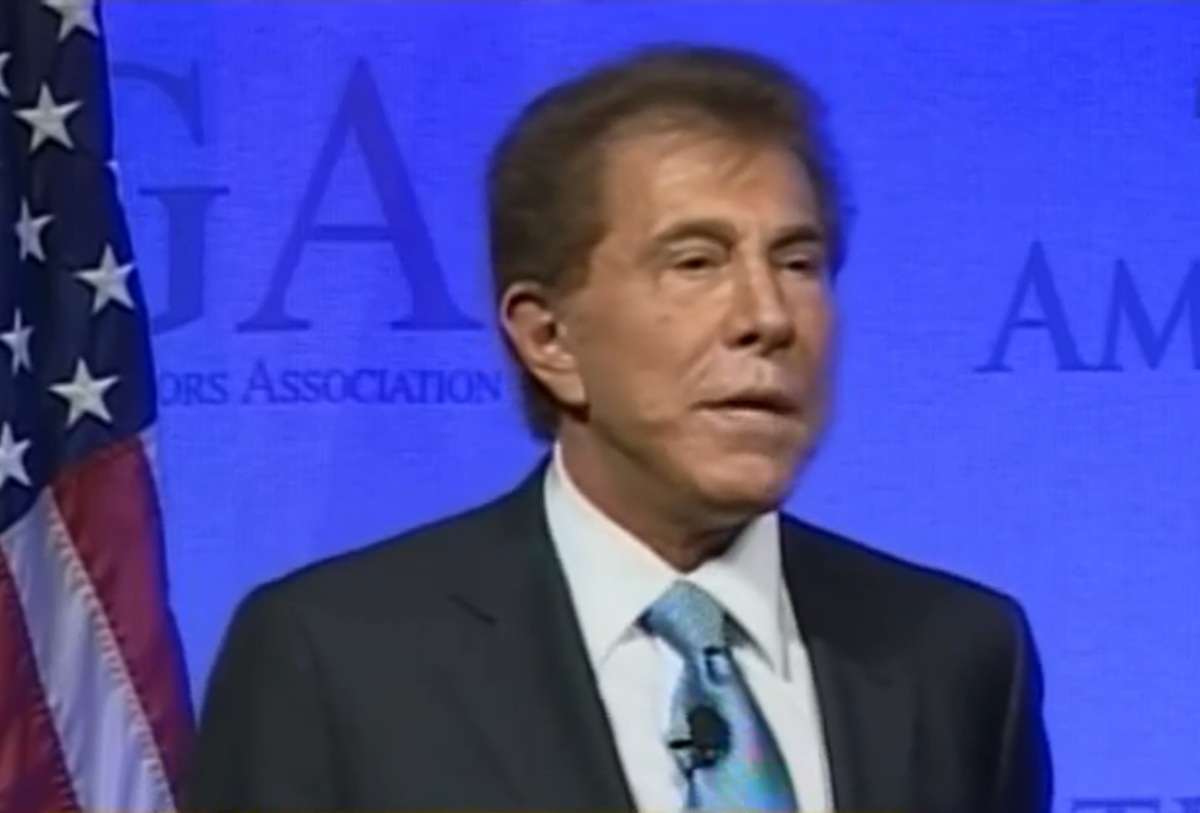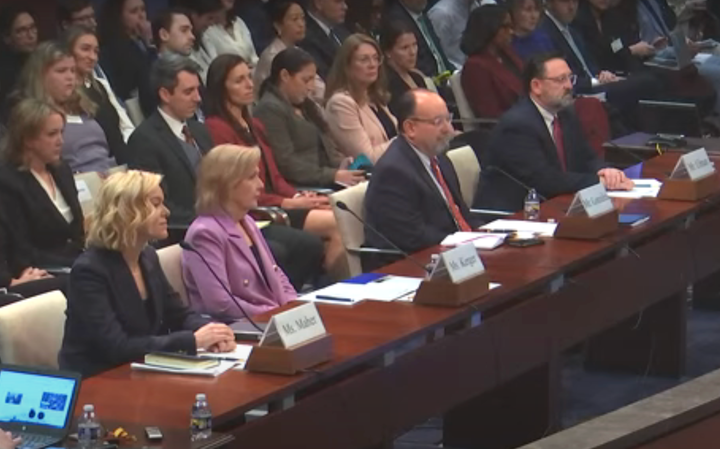Trump Megadonor Escalates Campaign Against Freedom of The Press
If billionaire Steve Wynn prevails, it would potentially open the floodgates to libel lawsuits against reporters, editors, producers, and news media

The following article was made possible by paid subscribers of The Dissenter. Become a subscriber and support independent journalism on whistleblowing, press freedom, and government secrecy.
In 1964, the United States Supreme Court issued a unanimous decision known as New York Times Company v. Sullivan that further protected freedom of the press and speech under the First Amendment of the U.S. Constitution.
Billionaire Steve Wynn, a casino tycoon and former finance chair of the Republican National Committee (RNC), has now asked the U.S. Supreme Court to overturn this precedent. During the 2024 election cycle, he donated over $1 million to groups that supported President Donald Trump.
If Wynn prevails, it would potentially open the floodgates to libel lawsuits against reporters, editors, producers, and news media organizations and have a chilling impact beyond what President Donald Trump has accomplished through his latest torrent of lawsuits.
"Sullivan is an admittedly ahistorical precedent, divorced from any understanding of the law when the First Amendment was enacted,” Wynn states in his petition [PDF]. “Not only does it fail to adhere to history and tradition, it is unfit for the modern era where any person or corporation may, with the push of a button, publish defamatory material for the billions of people around the world to see—defamatory material that, like everything else on the internet, will exist forever.”
Wynn further insists that the U.S. Supreme Court should respond to the “age of clickbait journalism” and end this “golden era of lies.”
Floyd Abrams, a renowned First Amendment lawyer who represented the New York Times in the Pentagon Papers case, has described Sullivan as “the single greatest First Amendment victory for the press in American history.” It established an “actual malice” standard for defamation to ensure that “debate on public issues” remained “uninhibited, robust and wide-open.” Particularly, it protected “vehement, caustic and sometimes unpleasantly sharp” criticism of government and public officials enabling the press to perform its watchdog role.
Wynn's appeal stems from a story that the Associated Press (AP) published in February 2018 after the organization “obtained copies of police reports recently filed by the two women about allegations dating to the 1970s.” Las Vegas police had taken their statements after the Wall Street Journal reported on allegations from dozens of Wynn Resorts employees, who accused Wynn of “sexualizing” his workplace and “pressuring” workers to “perform sex acts.”
He sued Halina Kuta, one of the women who provided a statement to police, as well as the AP and Regina Garcia Cano, who reported the story.
'Threatening The Foundation Of Our Republic'
The arguments from Wynn in his petition to the Supreme Court reflect an intent to diminish the power of the press. He maintains that the establishment of an actual malice standard was “driven solely by policy considerations: that the free flow of information necessary for the public to make informed political decisions required the Court to protect some falsehoods.”
Wynn later contends, “The modern media environment, buoyed by Sullivan’s standard, corrodes public discourse and weakens our democracy."
One section of Wynn’s petition casts his effort as necessary to prevent the rise of totalitarianism.
“The constant siege of misinformation and outright falsities ‘erode belief in anything’ and ‘undermin[es] the very possibility of a socially validated reality.’ Or, in other words, the prevalence of lies, blessed by the Sullivan standard, ‘creat[es] a nihilistic and disengaged electorate that is unable to appreciate accurate information when it is presented to them,’ threatening the foundation of our Republic.”
Wynn refers to Hannah Arendt’s “Origins of Totalitarianism”:
The ideal subject of totalitarian rule is not the convinced Nazi or convinced Communist, but people for whom the distinction between fact and fiction . . . and the distinction between true and false . . . no longer exist.
It is evident that Wynn is solidly against or has chosen to be willfully ignorant of the contribution Sullivan had to strengthening free speech.
Of course, the petition highlights Justices Clarence Thomas and Neil Gorsuch for their criticism of the Sullivan decision. But it is important to note that Wynn's appeal is not the first time in recent years that the high court—with a conservative majority—has been presented with an opportunity to undo the actual malice standard. Thus far, the precedent has been left alone.
Opposing The Right Of The Press To Report
The AP article that upset Wynn left out many of the unbelievable details in Kuta’s story, though rather than view that as a sign of responsible journalism, Wynn interprets this as evidence that the media organization knew it was engaged in defamation.
Only in August 2018, after Kuta submitted a sworn statement in the defamation lawsuit against her, did the AP report that Kuta had told police that she gave birth to Wynn’s daughter in a “gas station restroom.” Yet the AP acknowledged that her allegations were full of “inconsistencies about dates, names and other things she said happened to her.”
In 2020, Clark County District Court Judge Ronald Israel ruled that Kuta had “knowingly made a false report” and defamed Wynn by providing a police with a “totally fanciful” story. Wynn was awarded a dollar in damages.
The same judge heard Wynn’s lawsuit against the AP and Garcia Cano, and in August 2018, Israel upheld the right to report on the “official police record.” Israel also determined that the AP and Garcia Cano were protected by a Nevada law against “strategic lawsuits against public participation.” (Essentially, anti-SLAPP statutes are designed to protect freedom of expression under the First Amendment from “meritless” lawsuits.)
Wynn twice appealed to the Nevada Supreme Court. He contended that the article did not discuss “an issue of public interest” and that it was not written or published “without knowledge of its falsehood.” Ultimately, on September 5, 2024, the Nevada Supreme Court upheld the First Amendment rights of the AP and Garcia Cano.
“In the weeks preceding publication of this article,” the Nevada Supreme Court recalled, “Wynn resigned as CEO of Wynn Resorts and as Finance Chair of the Republican National Committee due to the national reports of alleged misconduct; and contemporaneously, Wynn Casinos, the Nevada Gaming Control Board, and other regulators launched investigations into his conduct.”
The Nevada Supreme Court added, “The allegations undoubtedly affected his public business and political affairs, and additional reports of sexual misconduct would be of concern to a substantial number of people, including consumers, voters, and the business and governmental entities investigating precisely this kind of behavior. The public had an interest in understanding the history of misconduct alleged to have been committed by one of the most recognized figures in Nevada, and the article directly relates to that interest.”
Wynn also asserted that the AP article was defamatory because the news outlet had failed to investigate Kuta’s claims. But the Nevada Supreme Court recognized that “all identifying information in the complaint was redacted,” making it “impossible to meaningfully investigate further as long as that information was unknown.”
The Las Vegas Review-Journal was involved in reporting sexual allegations against Wynn. In 2023, that reporting helped lead to a “$10 million fine” from “Nevada gaming regulators." He also agreed to no longer have involvement in the industry. He resigned from his position as RNC finance chair in January 2018.
Review-Journal Executive Editor Glenn Cook said, “Any decision to scale back or unwind the New York Times v. Sullivan decision would be a massive blow to press freedoms and the media’s ability to report on public figures.”
As Cook recalled, “Wynn previously has pushed back on the right of the press to accurately report on him from privileged public records. Attorneys representing Wynn in 1998 pressured the Review-Journal against publishing allegations, reported from part of a federal lawsuit, that he coerced a Mirage waitress into sex. The Review-Journal’s management subsequently killed the story. The story was published under the newspaper’s current management in 2018.”
Wynn absurdly believes that he has ceased to be a “public figure” when he resigned as CEO of his casino corporation in February 2018. (He advances this argument in his petition to the U.S. Supreme Court.)
“The Review-Journal could have brought forward allegations of sexual misconduct against Wynn 30 years before the events that ended his career in gaming,” Cook emphasized. “That was public information about a powerful public figure. Public figures are held to a different standard for good reason.”




Comments ()